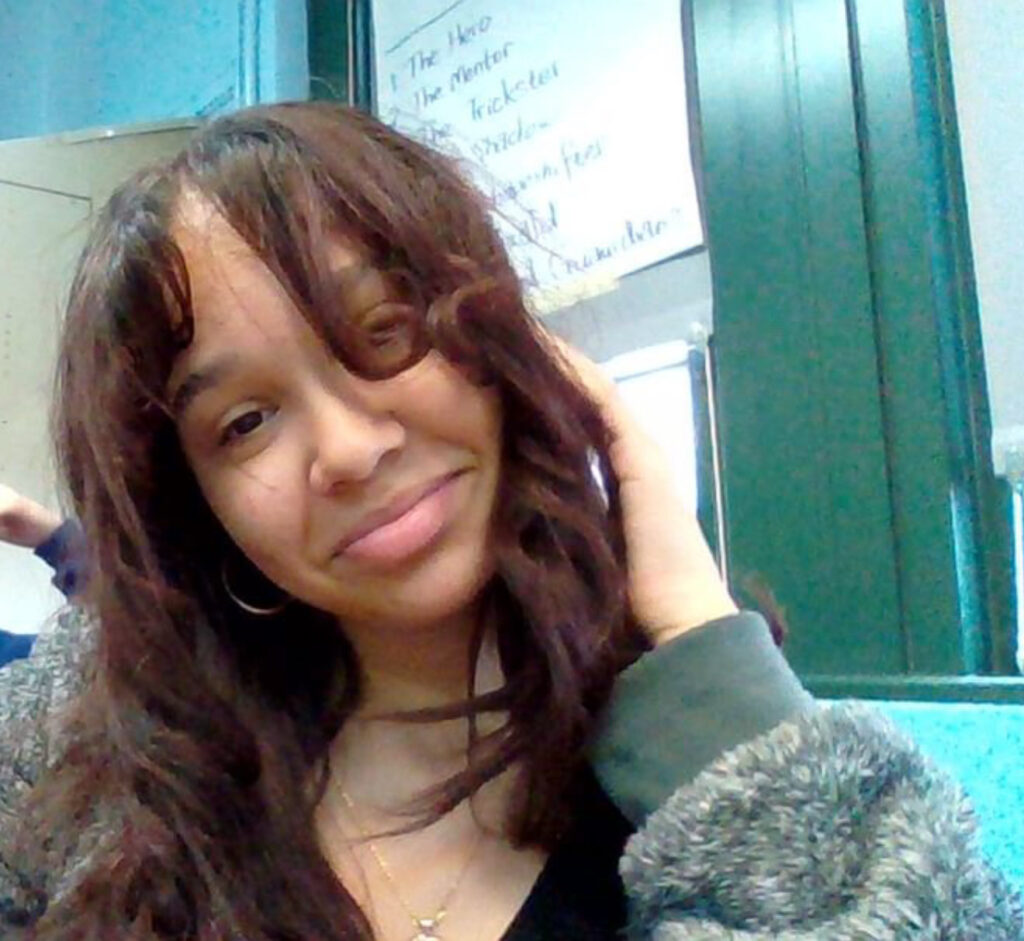October 23, 2025
Loss and Learning: Jhoana Marte-Villaman
By Nic Wong
By Emily Batista

When losing a loved one, the world seems to pause, and the emotional impact lasts. I sat down with Jhoana Marte-Villaman, a high school student at Celia Cruz Bronx High School of Music, who had to leave school due to the death of her grandmother. She and I talked through the steps she took to cope with that loss. Fortunately, she had her community at her side. “It was about having the courage to ask for help and knowing I had people who cared,” Marte-Villaman shared.
When she first took a leave from school, besides not being able to see or be around friends, the reason she went on leave filled her with anxiety. “Usually, when people travel, it’s for pleasure,” she reflects. Facing the heartbreaking reality of her grandmother’s deteriorating condition, and knowing that any interaction could be their last, was a constant trigger for her grief. Yet, back in New York, life carried on for her peers. They posted regularly on social media about daily life, attending classes. “It felt like what I was going through wasn’t important to anyone but my closest friends and teachers,” she noted. That feeling isn’t unique. According to the American School Counselor Association, nationally, American high schools have an average of 376 students per counselor. That is way above the recommended 250:1 ratio. With only a few states meeting that recommended ratio and counselors being overwhelmed it’s unlikely for every student to have an open resource of support. For Marte-Villaman, her grandmother’s illness suddenly took a turn for the worse, and following the loss of her grandmother, this feeling of isolation took an emotional toll on her, making her time away from school even harder.
Marte-Villaman referred to her mornings as “hard,” and she struggled to maintain a connection with her school environment. She attempted to work on assignments that her teachers had uploaded online, routinely messaging teachers and checking for new work. Even so, her assignments were not at the forefront of her mind. Instead, she recalled taking days to complete assignments. “I felt more behind than everyone else, and it stressed me out. I didn’t know how I would catch up.” The work piled up faster than she anticipated, and the load never seemed to lighten and instead got heavier.
Returning to school, Marte-Villaman came to realize her grades weren’t up to standard. Despite putting on a normal front at school, one of her close friends, Mia, could tell something wasn’t right. “She’d pretend she was fine, until these moments where you could tell her energy shifted and she became dissociative,” Mia described. In those moments, instead of pushing for responses from her, Mia simply just kept her presence near, and that was enough. “I was comfortable enough to cry and know she wouldn’t judge,” Marte-Villaman shared. After being away for a week, she knew she had to be open with her teachers and principal about the reason for her absence. “Communication played a huge role in getting back on track,” she said. Jhoana noted a majority of her teachers understood the emotional trauma she went through—her vulnerability created a space where her teachers had all privately checked in on her. These moments gave her the comfort she needed to be able to push through, showing that even small acts go a long way in validating someone and their experiences. She ended up grinding on all her assignments, keeping in frequent contact with her teachers with any questions or complications. Alongside that, she used her free periods to make up tests/assessments, and she took advantage of any tutoring available to make sure she got back on track.
While Jhoana’s story highlights her own struggle and support system, it also reveals how experiencing grief can deepen a student’s awareness and provides clarity on who else may be struggling in the community. After going through a personal loss, she gained insight and sensitivity to recognize her peers and their struggles. She began to be inspired to reach out with the intention to give a safe space to those around her. “It’s important for people to have someone in their corner especially through tough circumstances in their lives,” she explained.
Jhoana’s experience opened her eyes to the invisible battles that many students face. This shift in perspective transformed her role within her community from someone needing support to someone offering it to her peers.
https://www.schoolcounselor.org/About-School-Counseling/School-Counselor-Roles-Ratios?utm_source


